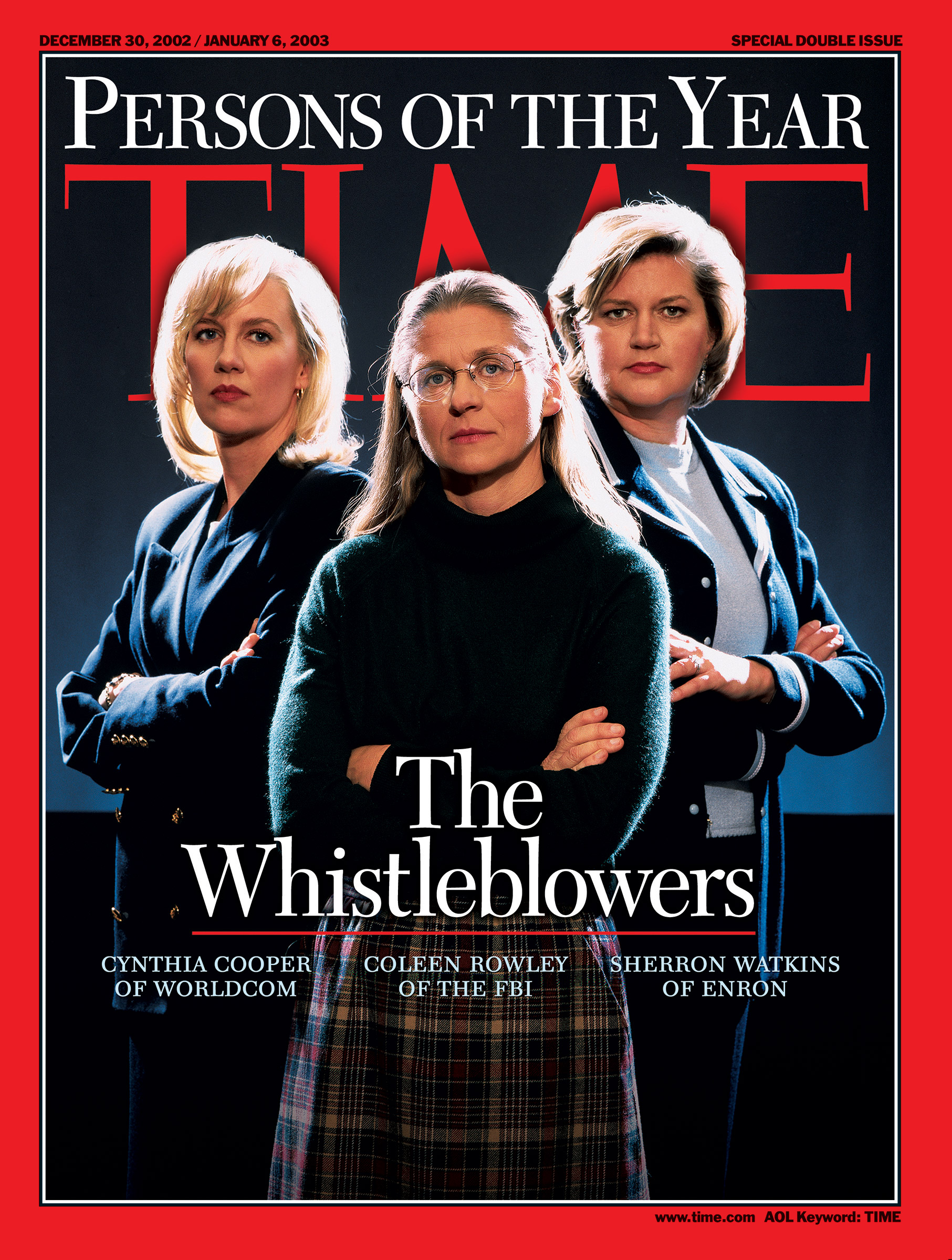Against the big personalities of politics and business, workaday people can seem inconsequential. But by 2002, three women made it clear that when dedicated to doing the right thing, anyone can make a difference. Cynthia Cooper alerted the audit committee of telecom giant WorldCom to one of the largest accounting frauds in history; Sherron Watkins warned then Enron CEO Kenneth Lay of an accounting hoax that concealed hundreds of millions of dollars in debt; Coleen Rowley detailed the FBI’s failure to respond to warnings from her field office about a conspirator in the Sept. 11 attacks.
For their actions, the three whistle-blowers were named TIME’s Persons of the Year in 2002. “We don’t feel like we are heroes,” Cooper said then. Though the women told TIME that they were just doing their jobs, their actions had huge repercussions. Congress passed the Sarbanes-Oxley Act in 2002 to establish more robust financial regulations for public companies as a reaction to the accounting scandals at Enron and WorldCom. The FBI embarked on a yearslong reorganization. And at places like Cambridge Analytica and Uber, employees knew that speaking out against wrongs at giant organizations could have enormous impact. —Alana Semuels
This article is part of 100 Women of the Year, TIME’s list of the most influential women of the past century. Read more about the project, explore the 100 covers and sign up for our Inside TIME newsletter for more.
